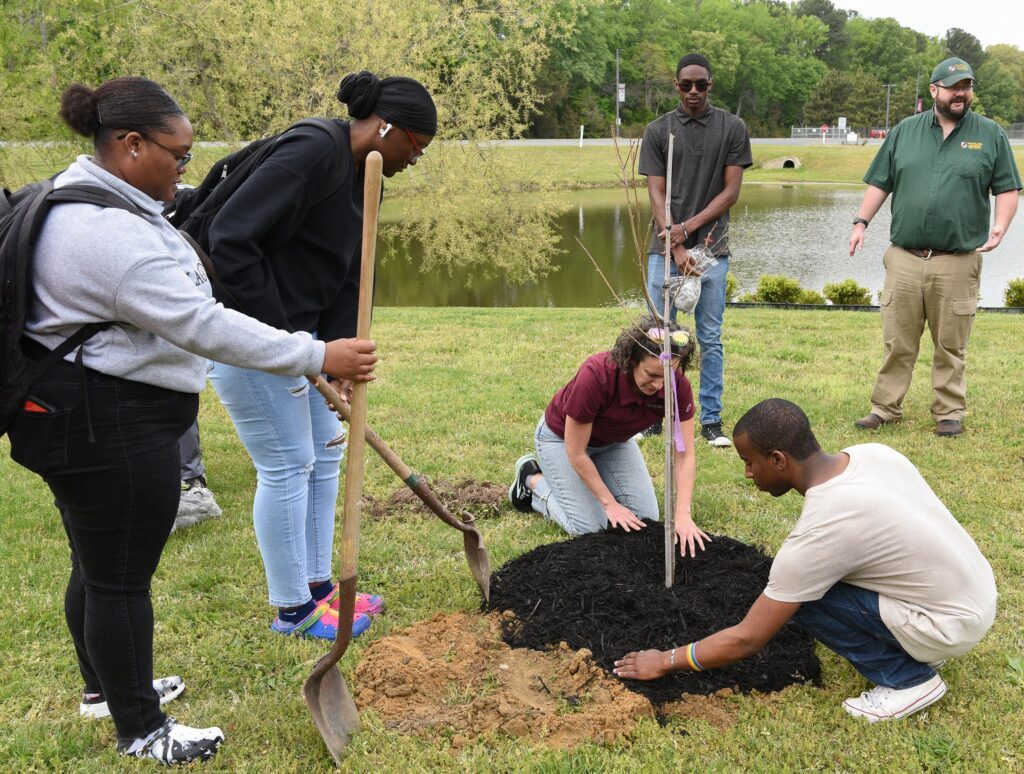
Urban areas are typically warmer than their surroundings, which means that increased temperatures due to climate change are amplified there. Increasing the number of urban forests can work to control this effect and even mitigate or reverse it.
The University of Maryland Eastern Shore is part of a coalition of 1890 land-grant universities embarking on a mission to maintain and plant trees across the country in response to climate change. Combating extreme heat is the main goal along with improving access to nature for health and recreation throughout communities across the nation.
Students in the university’s urban forestry program will receive improved educational opportunities, participate in community urban forest projects, and help develop the campus as a public arboretum as part of a historic $35 million U. S. Department of Agriculture Forest Service Urban and Community Forestry Grant awarded to the 1890 Universities Foundation. UMES received $2 million to conduct its portion of the grant activities to be led by Stephanie Stotts, an associate professor of urban forestry in UMES’ departments of Natural Sciences and Agriculture, Food and Resource Sciences.
“Urban trees provide substantial ecosystem benefits and services for the environment, the economy and people. Since 80% of Maryland’s population lives within urban areas, the potential impact of this work is incredibly important,” Stotts said. “Our urban trees are often under enormous stress and climate change adds to that burden, making projects that produce climate resilient all the more urgent.”
“This funding propels the united front of 1890 historically Black land-grant universities to pioneer efforts addressing health disparities, fostering environmental justice through enhanced urban forestry programs and leading at the cutting edge of essential climate crisis response efforts.”—according to the Sept. 19 announcement by the 1890 Universities Foundation headquartered in Washington, D.C.
UMES is among five of the nation’s 19 HBCU’s that are 1890 land-grant universities included in the grant project, including Alabama A&M, Southern, Tennessee State, Tuskegee and the University of Arkansas at Pine Bluff. Funds are covered by the Justice40 Initiative made possible by the Biden administration’s Inflation Reduction Act.
Above: Applying mulch as a finishing touch to a tree planting on the UMES campus last spring, from left, are (standing) Daylah McCullough, Rolle Ngongang, Charles Smith III, (kneeling) Dr. Stephanie Stotts (faculty lead for UMES’ Urban Forestry Program) and Logan Doggett.
Gail Stephens, agricultural communications, University of Maryland Eastern Shore, School of Agricultural and Natural Sciences, UMES Extension, gcstephens@umes.edu, 410-621-3850.
Photo by Todd Dudek, agricultural communications, University of Maryland Eastern Shore, School of Agricultural and Natural Sciences, UMES Extension, tdudek@umes.edu.

